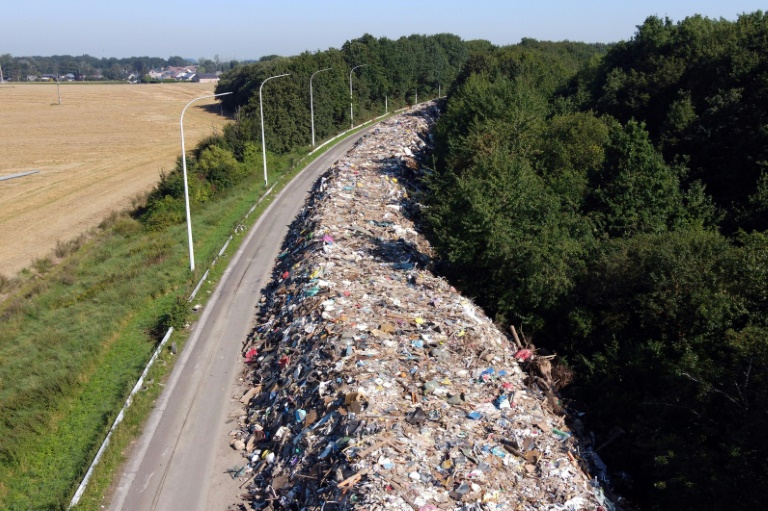In eastern Belgium, an abandoned highway is almost completely buried under kilometres of piled-up rubbish: crushed refrigerators, splintered furniture, torn curtains, twisted metal, stuffed toys, defunct electronics and shards of glass.
The makeshift dump — comprising 90,000 tonnes of domestic debris stretching for eight kilometres (five miles) down the closed A601 motorway north of the city of Liege — is testament to the devastation wreaked by unprecedented floods in mid-July.
When residents in this part of the affected Wallonia region had their homes, schools and businesses broken apart by the rushing water, authorities were suddenly confronted with a mountain of refuse.
“All their household appliances, their cupboards, their furniture were destroyed, and so they put them in the street outside their places and the municipalities were obviously forced to clear the streets for safety reasons,” the head of Liege’s rubbish-clearing service INTRADEL, Luc Joine, told AFP.
– Pest control –
With local garbage and recycling depots quickly saturated, INTRADEL designated three temporary sites to store the 160,000 tonnes that were trucked away — more than half of it going to the disused motorway, in a mostly rural area.
After an initial screening by police to ensure no human remains were hidden in the stacks of garbage, the regional government stepped in.
Joine explained that the road surface prevented pollution seeping into the topsoil, and tarpaulins shielded visible parts of the trash highway from nearby houses while guards were posted around the clock to stop trespassers.
Pest control workers also regularly pass by to get rid of rats, and trucks spraying water suppress rising dust and odours.
Authorities, though, are aware that the road-dump solution is a short-term fix.
The plan is to clear the site by recycling up to 60 percent of the debris and incinerating the rest, but the scale of the task means the operation will take at least nine months.
The environment minister for the regional Walloon government, Celine Tellier, said the administration has set aside 30 million euros ($36 million) to tackle the trash at the three temporary dumps.
She added that the underlying approach was to show respect to the people whose accumulated and broken detritus was now steaming under the Belgian sun.
“These are also pieces of the lives of citizens who lost a lot of memories in the floods,” she said.
“It is touching, on a personal level, to see children’s toys, child car-seats and so on next to a family photos. And so of course this debris is important and I think we need to treat all this, all these personal histories, with dignity.”










